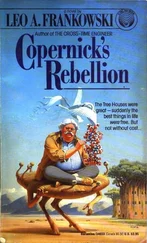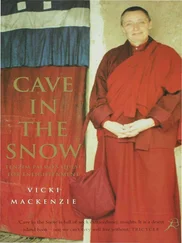Leo Frankowski - CONRAD'S QUEST FOR RUBBER
Здесь есть возможность читать онлайн «Leo Frankowski - CONRAD'S QUEST FOR RUBBER» весь текст электронной книги совершенно бесплатно (целиком полную версию без сокращений). В некоторых случаях можно слушать аудио, скачать через торрент в формате fb2 и присутствует краткое содержание. Жанр: Альтернативная история, на русском языке. Описание произведения, (предисловие) а так же отзывы посетителей доступны на портале библиотеки ЛибКат.
- Название:CONRAD'S QUEST FOR RUBBER
- Автор:
- Жанр:
- Год:неизвестен
- ISBN:нет данных
- Рейтинг книги:4 / 5. Голосов: 1
-
Избранное:Добавить в избранное
- Отзывы:
-
Ваша оценка:
- 80
- 1
- 2
- 3
- 4
- 5
CONRAD'S QUEST FOR RUBBER: краткое содержание, описание и аннотация
Предлагаем к чтению аннотацию, описание, краткое содержание или предисловие (зависит от того, что написал сам автор книги «CONRAD'S QUEST FOR RUBBER»). Если вы не нашли необходимую информацию о книге — напишите в комментариях, мы постараемся отыскать её.
CONRAD'S QUEST FOR RUBBER — читать онлайн бесплатно полную книгу (весь текст) целиком
Ниже представлен текст книги, разбитый по страницам. Система сохранения места последней прочитанной страницы, позволяет с удобством читать онлайн бесплатно книгу «CONRAD'S QUEST FOR RUBBER», без необходимости каждый раз заново искать на чём Вы остановились. Поставьте закладку, и сможете в любой момент перейти на страницу, на которой закончили чтение.
Интервал:
Закладка:
WRITTEN JANUARY 17, 1250, CONCERNING JUNE 5, 1249
IN THE morning, after mass and the recitation of our Army Oath, Maude and I breakfasted, and I armed myself. Since I felt there was no possibility of any fighting taking place, I left off my leg armor. The combination of wearing infantry armor and riding in a saddle for two days had left parts of my posterior blistered where it wasn't bleeding.
Lord Conrad noticed my less-than-complete uniform and asked me why I was breaking general combat orders during what was still, officially, an alert. When I explained, he ordered that I see the battalion's armorers and get fitted for a set of the new cavalry armor.
I found the armorers with nothing much to do that day, except to sort out battered, bloody enemy armor and decide what should be scrapped, what repaired, and what saved as souvenirs. Given the chance to do honest work, they all jumped at it, and soon I had a dozen of them working in my cause.
They never let me leave their camp for more than a few minutes, as they took a set of standard heavy stampings from their storage boxes and cut, filed, and fitted them to my body.
Three seamstresses were soon at work, taking the partially finished sections of a summer gambezon from storage. They were cut oversized, with only half the seams sewn. Soon they were trimming and sewing them into a new garment for me, to suit the armor. Small pieces of chain mail were sewn on, covering the armpits, the insides of the elbows, and the backs of the knees, where the armor plates could not protect me.
I was surprised that I had no protection for my lower buttocks and my privy members below the belt, but I was told that when mounted, the saddle would keep those parts protected.
I said that my Big Person had not come with a saddle with that high of a cantle. Their response was to issue me a chit that got me a new, Wolves-style saddle, with built-in holsters for two submachine guns and a rifle.
Nonetheless, I resolved that someday soon I would get myself an armored skirt to wear in case I had to fight on foot. If I had to, I'd pay for it myself!
Most helmets have one piece that protects the top, back, and sides of the head, and a separate visor to protect the face. My new helm was just the opposite. The front, top, and sides were of a piece, and the back hinged up to let you in.
By late afternoon, an astoundingly short period of time, I was gloriously arrayed in the latest style of personal protection. They even found time to polish the plates, giving them the mirror finish so prized by the old nobility.
I lacked only the panache of gray plumes worn by the Wolves to look like one of their number, and I found myself wondering where I might possibly buy some plumes of some other color. Perhaps red.
One night I asked Maude how, just before the battle, she had managed to get from my lap to Silver's rump without my seeing her get there.
"I jumped."
I asked why I hadn't seen her move.
"I jumped quickly, when you blinked. It's how you move in combat. You wait until people blink, or look in another direction, then you move quickly."
I said that I was amazed.
"Would you like me to demonstrate it for you?"
I said that she could do it later. For now, it wasn't worth getting out of bed for.
Looking at Maude, admiring the lovely curve of her hip, and flank, and breast, I mumbled something to myself about the Lilies of the Field. She heard me, and asked what I was talking about.
I said, " 'And why take ye thought for raiment? Consider the lilies of the field, how they grow; they toil not, neither do they spin: And yet I say to you, That even Solomon in all his glory was not arrayed like one of these.' " I told her that it was from Jesus Christ's Sermon on the Mount.
I'm not a Bible scholar, but that one has always stuck in my head. And how could any young man resist the chance to impress his love?
"Yes. That is exactly right. Christ would always know what is best. We should not care about our raiment," she said, and continued in her nudity.
Maude had a perfect memory, and after that she would quote those verses of Matthew whenever anyone objected to her lack of coverings. When I said that she had to look at these words in context, she wouldn't consider it. Christ had spoken, He could not possibly be mistaken, and that was that.
I began to understand the saying about how a little knowledge was a dangerous thing, and why the Church does not encourage laymen to read the Bible.
When I asked her to please not argue with the bishop about religion, she asked what a bishop was, and we were promptly into another long, one-sided conversation.
From the Diary of Conrad Stargard
JUNE 5, 1249
I spent the day preparing to invade a major part of the Holy Roman Empire. Ordering up six more battalions of infantry was the easy part. Harder was the fact that our infantry could not move efficiently without a railroad going where they wanted to go. You see, our equipment and tactics had all been designed with defending the country in mind. Until recently, very little work or thought had gone into offense.
Units like the Wolves could go anywhere fast, as much as four gross miles a day, but we only had a single company of them.
A platoon of men could pull their war cart six dozen miles a day when they were rolling on steel rails. With some men pulling and some men sleeping, they could go around the clock. Averaged out, they were much faster than the enemy's conventional cavalry.
Put the same platoon on a good conventional road, and the best they could do was about two dozen miles, since it took all of them, pulling hard, to move the heavy thing on a dirt surface. There was no possibility of rolling around the clock.
The existing roads from Lubusz to Brandenburg were not very good, and in some sections it was doubtful if a single platoon could make a war cart move at all!
We had to get our infantry into Brandenburg, and once there, we needed to give them some mobility.
Then, we not only had to take and to occupy Brandenburg — an area of about six thousand square miles — we had to bring it into our system, and fast!
If the conversion went quickly and smoothly, the bulk of the Slavic-speaking population would be eagerly on our side, and the former conquerors would be dispirited.
If we let the German-speaking minority have time to organize itself, we could see factional fighting and guerrilla warfare for many years.
Worse yet, in my old time line, Brandenburg had joined with Prussia to form the state that was the political basis of modern Germany and the cultural basis of the Nazi party. These were the people with the strutting jackboots, and the firm belief that all other peoples were subhuman, untermensch. I wanted to make sure that the thing didn't happen in this time line.
Making Brandenburg a part of Poland meant bringing in our schools, with their general stores and their post offices. It meant bringing in our farming methods, our seeds, and our farm machinery. It meant bringing in our uniform measurement system, our monetary system, and our judicial system.
All of which involved a lot of travel and transport.
There was nothing for it but to build railroads. Lots of railroads. Quickly.
What I was planning was to be one of the fastest construction projects in army history. Everything else in the entire nation would be made subordinate to this single project. Every bit of materials and manpower, anything that could be of use, would be rushed to Lubusz. No matter what project had to be put on hold, no matter where else the materials were needed, no matter what the men would rather be doing, the new rail line to Brandenburg came first.
Our existing rail lines were placed defensively, on the east bank of the Odra. A pontoon bridge would be thrown across the river at Lubusz, which would stay in business until a real, masonry bridge could be finished, or until the thaw next spring took it out.
Читать дальшеИнтервал:
Закладка:
Похожие книги на «CONRAD'S QUEST FOR RUBBER»
Представляем Вашему вниманию похожие книги на «CONRAD'S QUEST FOR RUBBER» списком для выбора. Мы отобрали схожую по названию и смыслу литературу в надежде предоставить читателям больше вариантов отыскать новые, интересные, ещё непрочитанные произведения.
Обсуждение, отзывы о книге «CONRAD'S QUEST FOR RUBBER» и просто собственные мнения читателей. Оставьте ваши комментарии, напишите, что Вы думаете о произведении, его смысле или главных героях. Укажите что конкретно понравилось, а что нет, и почему Вы так считаете.











